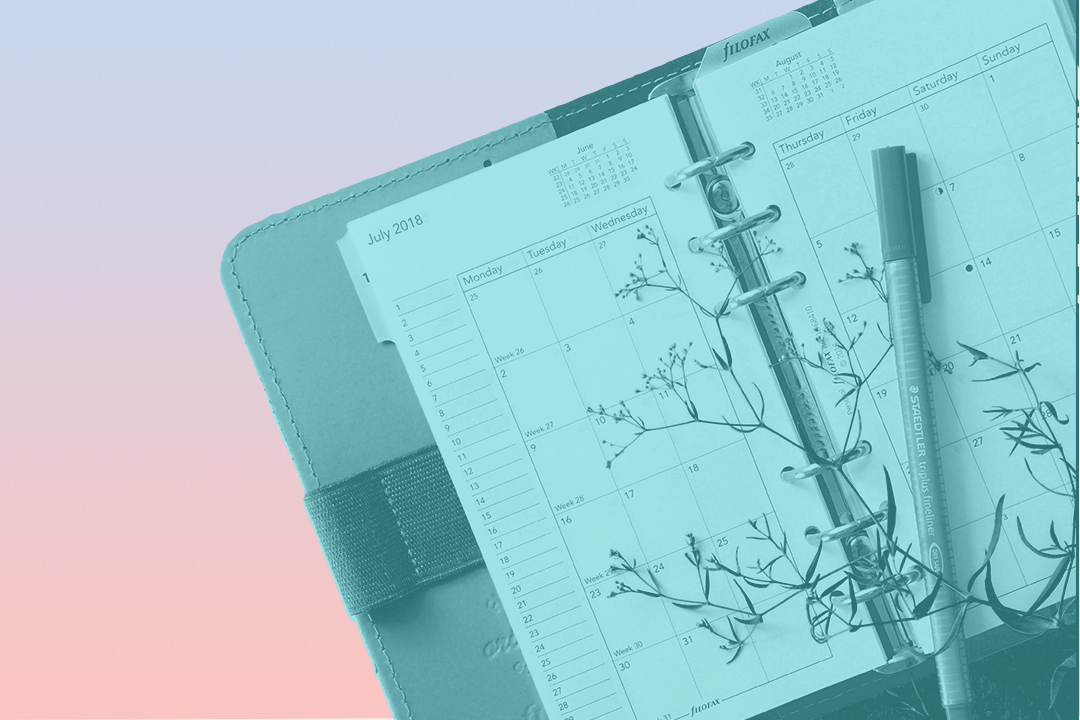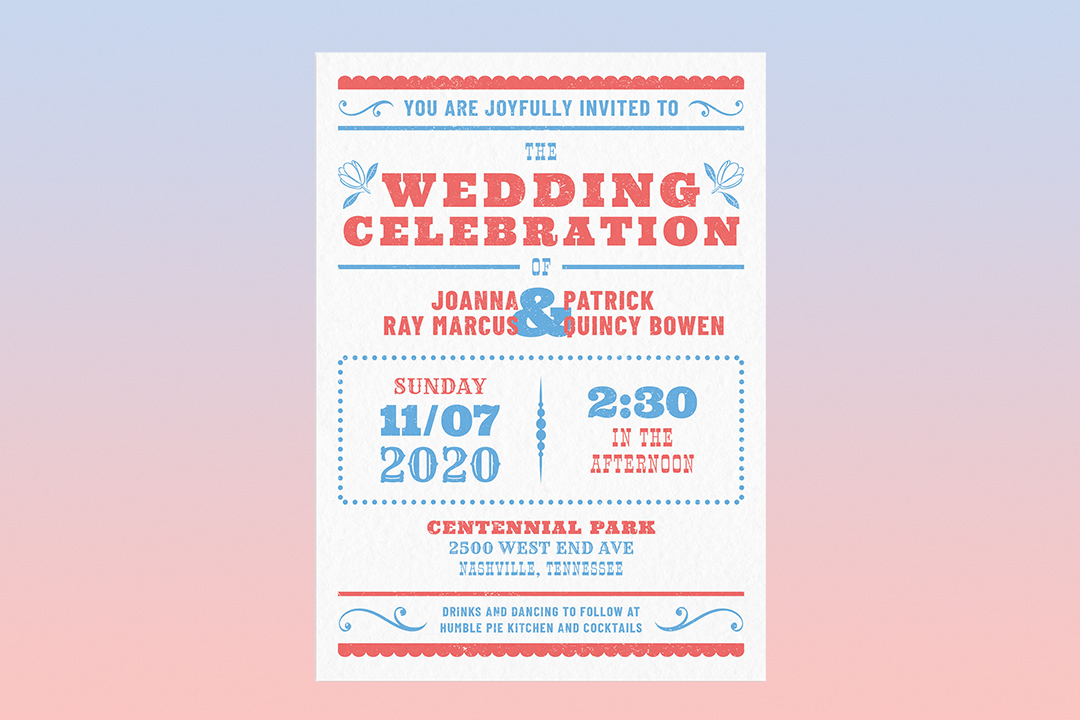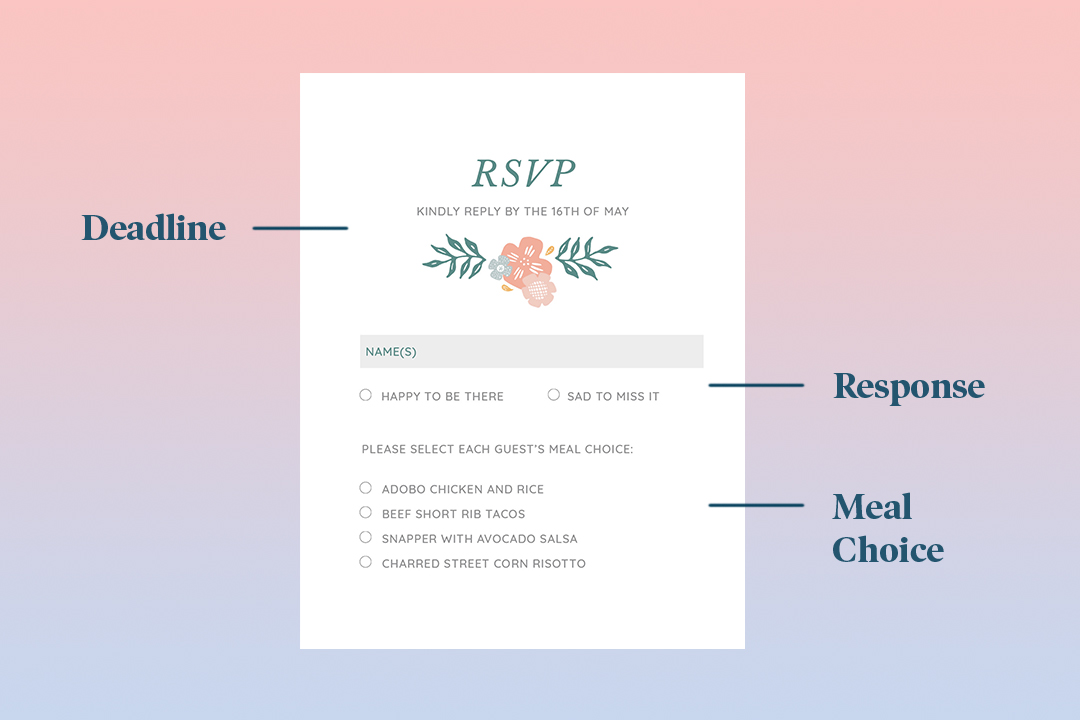- Expert advice/
- Wedding planning 101/
- Wedding planning tools/
- Muslim Wedding Checklist
- Wedding planning tools
Muslim Wedding Checklist
Looking to plan a Muslim wedding? Here’s everything you need in this Muslim wedding checklist.
Last updated February 5, 2024

The First Look ✨
- Muslim weddings come with their own unique list of to-dos. Before you get deep into planning, talk about what kind of wedding you want to have and which cultural practices you want to incorporate.
- When it comes to the ceremony, figure out whether you want to be married in a mosque by an imam or qazi or by someone who understands Islamic tradition and laws.
- The week of the wedding, take your outfit, accessories, and shoes for a test drive to make sure you feel good in your attire and that everything fits.
- From wedding registries to wedding websites, Zola has everything you need to make your wedding special.
Planning a wedding requires months of decision-making, preparation, and to-do lists. With the help of your future spouse and your community, it’s possible to get it all done with a smile on your face—but only if you have the right checklist.
Like every pair, you want a picture-perfect day filled with delicious food, beautiful decorations, and plenty of family bonding. As a Muslim couple, you’ll have a few more things on your to-do list to incorporate beloved traditions and make sure aspects of your wedding observe Islamic religious laws.
Don’t worry: We’ve got your back. In this guide, we’ll break down the process into four comprehensive categories:
- 12 to 9 Months in Advance: Mastering the Basic Details
- 9 to 6 Months in Advance: Planning the Ceremonies
- 6 to 3 Months in Advance: Inviting Your Guests
- 3 to 1 Month in Advance: Creating a Program Finalizing the Details
- Week of Wedding: Everything in Place
Conquer these tasks one by one and, inshallah, you’ll be well on your way to a beautiful wedding and marriage.
12 to 9 Months in Advance: Mastering the Basic Details
It takes time to plan a wedding. Happily, many Muslim parents and guardians want to be involved from the get-go. After your engagement—and a year or so in advance of your intended wedding—start to discuss your plans with your spouse, parents, and in-laws to get everyone on the same page.
Schedule a formal get-together or virtual chat to discuss the following details:
-
Wedding Type: What traditions and rituals will you observe? Will you have a conservative or liberal ceremony? How long will the celebration be? Will the wedding take place at lunch, dinner, tea, or will it be a multi-day affair? Consider whether you’ll complete the nikkah (marriage contract signing) and Walima (celebration and send-off) on the same day or consecutive days. In some cultures, the walima is a multi-day affair.
-
Guest List: Do you want a big wedding or a small one? You can split the difference by holding some private ceremonies and celebrations, which of course creates more planning in other regards. Once you have a ballpark idea of potential attendance, look for appropriate venues.
-
Mahr: Traditionally, the groom gives the bride a financial gift as part of the marriage contract. This could take the form of money, but today, many couples choose to count the exchanged rings as the mahr. This is sometimes negotiated between the parents, but you and your spouse can also request a say in the matter. If you’re observing this tradition, be sure to voice your preferences and expectations.
-
Budget: How much will the wedding cost? Who will pay for it?
-
Hiring a Wedding Planner: Will you seek out professional help to orchestrate your wedding? A well-qualified wedding planner with expertise in Muslim weddings can help lighten your load (for a fee). Of course, you can also DIY many or all aspects of your wedding.
Then, once your families are on the same page, start your logistical planning.
-
Pick a Date: Avoid scheduling your wedding during Muharram and Ramadan, and choose an auspicious date (potentially a Sunday).
-
Choose Your Wedding Venue (or Venues): Many Muslim couples choose to get married in a mosque. Most mosques have a marriage officer or qazi who can help streamline the process. However, getting married in a mosque is definitely not a requirement. If you and your honey would prefer to sign your marriage contract and hold your reception in the same space, start searching for a reception venue with the right capacity and availability.
-
Consider Conversion and Second Marriages: If one member of the couple needs to convert to Islam, make sure to include the timeline for this process in your preliminary planning. If it’s a second marriage, make sure you understand re-marriage requirements (including the three month waiting period).
-
Apply for Your Marriage License: Filling out government paperwork isn’t the dreamiest part of your wedding planning, but it’s important to get the ball rolling so that you can be legally wed.
-
Choose an Officiant: As a Muslim couple, you may want to be married by an imam or qazi. However, anyone who understands Islamic tradition and laws is qualified to perform the nikkah. Your chosen officiant can help you draft your wedding contract. If you’re getting married in a mosque, they can also advise you on how to:
- Avoid scheduling your wedding at the same time as mosque activities
- Wear (and advise guests to wear) appropriate attire
- Inform guests of appropriate behavior (i.e., segregating sexes or avoiding alcohol, if relevant)
While the only necessary part of a Muslim marriage ceremony is the nikkah, or contract, you may choose to have your officiant read a passage from the Quran or give a speech.
9 to 6 Months in Advance: Planning the Ceremonies
Once you have your date and venue, it’s time to imagine the details of the ceremony. This includes big-picture questions like the wedding theme (should you want one), as well as minute decisions about things like how to fold napkins.
Pick Your Perfect Wedding Attire
Depending on your cultural background, personal style, and where you’re getting married, there are a wide array of options for both the bride and groom.
-
If you’re getting married in a mosque, make sure to wear respectful clothing that covers the knees (and accord with any other rules around head coverings).
-
Visit a tailor to ensure your garments fit perfectly. You don’t want to be uncomfortable on your wedding day.
Beyond your clothing, make a plan for your appearance, including:
-
Jewelry: Try on pieces that match your attire. Have them polished before your wedding day. Don’t forget to choose and buy wedding bands.
-
Shoes: While you can’t wear shoes in a mosque, you’ll want an attractive, well-fitted pair for your procession to the venue and your celebratory meal.
-
Hair, Hijab, and/or Veil: If you wear a head covering, be sure to commission a special bridal hijab to complement your wedding dress. If you’re going bare-headed, find a hairstylist who can make your locks look their best on your big day. You could also consider a veil to complete the look.
The sooner you decide on your wedding outfits, the more time you’ll have for tailors to tweak and relatives to offer to let you borrow any jewelry or pieces you’ve had your eyes on.
Book Wedding Vendors
Luckily, your mosque ceremony should be fairly straightforward to plan. You can’t decorate the venue, so all you need to bring is yourself and your guests (in your wedding attire, of course).
But your wedding banquet is a different matter altogether. To make yours an occasion to remember, work with the following wedding vendors:
-
Photographer or Videographer: After working so hard to plan your wedding, you want plenty of photos to remember it by. Find a local photographer or videographer with a portfolio that catches your eye, and work together to create a shot list. Photographers tend to book up fast, so definitely put this on the top of your wedding to-do list.
-
Caterer: Decide whether or not your wedding will be halal. Then, look for a caterer who can cook up a delicious meal. Consider including traditional dishes like fish, chicken, and chocolate-covered almonds, or opt for a menu that’s uniquely you.
-
Bakery: Find a bakery that can accommodate a halal cake (if necessary)—and don’t forget to schedule a tasting.
-
Florist: Gorgeous floral displays are a mainstay of many Muslim cultures and weddings. If you plan to include flowers in your venue decor, find a local florist who can deliver the goods.
-
Decor Rental Company: You’ll need dozens of tables, chairs, napkins, forks, spoons… the list goes on. If you’re working with a wedding planner, they’ll likely help you find an appropriate provider for your seating and place settings. Otherwise, you can get the job done on your own with a little research.
-
Entertainment: Hire a DJ or live band to get your wedding guests on the dance floor after they’ve finished their feast. You can also consider renting a photo booth and setting up games.
Need help finding a vendor for your special day? Zola has you covered. Choose from an amazing selection of Zola’s pre-vetted vendors, from photographers to caterers (and yes, there’s a halal filter!).
6 to 3 Months in Advance: Inviting Your Guests and Creating a Program
As you get the ball rolling on all aspects of your wedding, it’s time to start inviting guests and giving them all of the important details. Take the following steps:
-
Start With Save the Dates: If you give your guests a heads up once you have your wedding date, it’s that much easier for them to block off time on their calendars and begin making travel arrangements. You don’t have to know all the details to extend this courtesy through e-vites or postcards. Typically, shoot for about six months before the wedding (but if you’re going for a destination wedding, send save the dates at least eight to 12 months ahead of time).
-
Register: Don’t leave your friends and relatives guessing about what to give you for your wedding. Create an online registry outlining your wants and needs.
-
Create a Wedding Website: While you’ll likely have older relatives calling you for wedding details no matter what you do, a free wedding website (like Zola’s) is a great place to collect details for the technologically savvy. As the date approaches, you can provide updated information on the timetable and transit.
-
Send Out Your Wedding Invitations: Once you’ve finalized your date, venue, and schedule of events, you’re ready to invite friends and family and request RSVPs.
Guest lists, registries, invites, wedding websites—it can seem like a lot to do at this stage of wedding planning. Zola has you covered as your home for all things wedding.
Design gorgeous wedding stationery with dozens of customizable options. From there, you can create a free stunning wedding website that will help clue your guests into the events of the day (and can even be in the same design and theme as your invites!).
Our wedding websites also seamlessly integrate with our digital Wedding Guest List Manager tool, so you can manage RSVPs, guest communications, and questions all in one place.
3 to 1 Months in Advance: Create a Program Finalizing the Details
The last few months of wedding planning can be so exciting. Make sure you check these items off your to-do list as the special day gets closer and closer.
Create a Program
Eventually, you’ll be ready to post a schedule of events on your website and create paper programs to use on the big day. These serve as play-by-play for the events of your wedding, helping guests know what to expect.
Include any of the following that applies:
-
Pre-Wedding Events: If you’re holding a picnic, informal gathering, or formal ritual, make sure it appears on the program.
-
Baraat: Some weddings include the groom’s formal procession to the mosque or site of the nikkah.
-
Nikkah: Perhaps the most important part of your wedding ceremony, the details for the timing of your nikkah should be clearly defined. If necessary, use your program as an opportunity to explain rules and rituals to guests who are not familiar with Muslim practices.
- Remind guests of the mosque’s etiquette
- Name your officiant
- List any other speakers and the passages they’ll be reading
-
Transit Between Venues: How can guests get between the site of your nikkah and your Walima? Let them know if you’ve commissioned a bus, rented a parking lot, or arranged other transportation options.
-
Walima: Feel free to list additional specifics, like a list of people who will be giving toasts. If there are separate, consecutive celebrations hosted by the bride and groom’s family, provide information for both.
Troubleshoot Your Look and Prepare for Fashion Emergencies
Once your tailor has made all necessary alterations, assemble your glam squad to get a preview of your wedding look. Whether you’re working with a professional stylist or rummaging for the right pair of socks with a couple of friends, take a good look in the mirror.
-
Does your chosen hairstyle or head covering complement your outfit like you thought it would? This is your last chance to make a change (without causing needless stress on your wedding day).
-
If you’re wearing makeup, are you happy with the way it complements your overall look? It’s not too late to experiment with different pigments and styles.
In addition, prepare a wedding apparel emergency kit with items that could help remove or disguise stains, fix broken straps, and mend tears.
Need any last-minute jewelry items, skincare items, or accessories? Explore Zola’s wedding boutique to add a little more sparkle to your day.
Week of Wedding: Everything in Place
In the months leading up to your wedding, you’ve moved mountains (logistically speaking). But that doesn’t mean your hard work is done.
The week before your wedding is an important time to double-check your work, make last-minute arrangements, and get ready for the next step. To reach the other side of marriage in good spirits, complete the following tasks in the lead-up to your celebrations.
Check With Vendors and Assign Point People for Guest Inquiries
If you’re working with a wedding planner, run through the schedule of events and make sure they’ve confirmed the information with vendors. If you’re planning your wedding yourself (or you want to be extra sure), do the following:
-
Advise vendors of updated headcounts and any other new information (i.e., accessibility issues, dietary preferences for guests, changes to the schedule, information about unloading).
-
Make sure you understand when your vendors expect payment. Take one thing off your wedding-day plate by writing checks in advance, placing cash tips in envelopes, and assigning a point person to settle up at the end of the night.
-
Ask the wedding planner or a trustworthy friend to serve as the point person for any issues that arise. Make sure they know where to access emergency supplies like lighters, batteries, the first-aid kit, and anything else you or a guest might need during the celebration (within reason).
Get Ready for Your Honeymoon or Other Post-Wedding Events
Some couples jet off to Hawaii right after their weddings; others move in together.; others prepare for a formal, ritual visit to the bride’s family after her first few days away from home.
Whatever’s next on the horizon, planning ahead can help.
-
Confirm Your Transportation Away From the Wedding Venue: Sure, you could always get an Uber, but wouldn’t you rather have a plan in advance?
-
Pack Your Bags or Prep Your New Home: You don’t want to spend the night of your wedding rifling through your drawers for clean underwear and socks. If you’re traveling, get packed. If you’re planning on moving in together after your nikkah, make sure your new home has everything you need.
-
If You’re Honeymooning, Confirm Your Itinerary: Print or download your tickets, double-check with your hotel, find your passport, and make sure you have everything else you need for a stress-free trip.
-
Check-in With Your Parents or In-Laws. Confirm their plans for any other post-wedding events—but let them take the reigns. Once your wedding ceremony is complete, you deserve a few days of relaxation.
Take a Moment to Rest
We know—it’s easier said than done. But a wedding is, at its heart, a joyful occasion and celebration of the new family you’re creating with your spouse. Amidst all the chaos of planning, find moments for levity, joy, and rest.
This could take the form of:
- A mani-pedi with your wedding party
- A walk, stretch, or fitness class
- Calming music
- Deep breaths
- Spending time with your future spouse
While it’s traditional for Muslim couples to spend the night before their wedding separately, it can be incredibly helpful to make time to connect. You could even try writing them a letter or talking on the phone to process all that you’re feeling in advance of your wedding day.
Get Wed With a Little Help From Your Friends—and Zola
Planning a Muslim wedding is a complex affair. If you feel bogged down with tasks, don’t be afraid to ask for help from your friends, family, imam, wedding planner, and anyone else in your contact book. Delegation is just as important as dedication.
At Zola, we’re here to make life easier as you plan your wedding. From our wedding registry tools to our wedding websites and beyond, we help streamline the process of finding reliable vendors and communicating with your guests.
Get started with our free customizable wedding planning checklist, so that you know exactly what’s on your personal to-do list. Then, take a deep breath, keep going, and look forward to a beautiful wedding and a happy marriage.
Up next for you

Chinese Wedding Checklist
How To
For everything you need to know about planning a Chinese wedding, we created this Chinese wedding checklist. Let’s make this ceremony one to remember.

How to Choose The Best Wedding Month
Getting Started
Choosing your wedding month and date is a crucial first step in the wedding planning process. Here's how to decide on the best time of the year to get married.

Traditional Wedding Decor Ideas
Inspiration
Weddings are built on traditions, old ones, and new ones. For a little bit of something old, check out these traditional wedding decor ideas from Zola!

7 Tips for Merging Cultures in a Multicultural Wedding
List
It's not easy to merge cultures, traditions, and families for a multicultural wedding. Here are expert tips on blending two or more cultures for your wedding day.
Featured

A Guide to Wedding Ceremony Programs
Inspiration
Wedding ceremony programs communicate valuable information to your guests about your ceremony service—find out all you need to know to choose, word, and personalize your wedding programs.

21 Unique Wedding Invitation Ideas
List
We have scoured the web for the most unique wedding invitations on the stationery scene, and we’re sharing them here.

How to Include Your Wedding Website on Your Invitation
How-To
Wondering how to share your wedding website with guests? Explore etiquette tips for how to share your wedding website on an invitation.

How to RSVP to a Wedding
How-To
If you've received an invitation to a wedding and you're not sure how exactly to respond? This is our guide to wedding RSVP etiquette, tips, and steps.
- Expert advice/
- Wedding planning 101/
- Wedding planning tools/
- Muslim Wedding Checklist
Find even more wedding ideas, inspo, tips, and tricks
We’ve got wedding planning advice on everything from save the dates to wedding cakes.